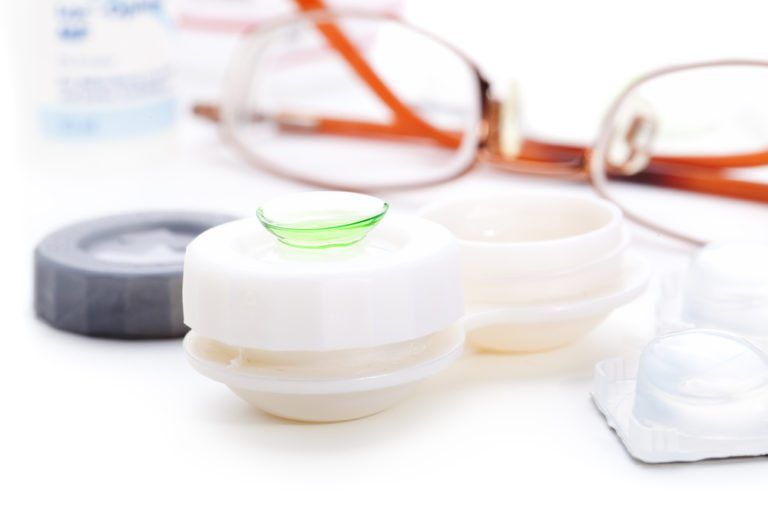Lens Options

For centuries, people have been using corrective eyewear to address vision impairments. Today’s lenses have come a long way from their predecessors and include both glasses and contacts. There are many different types of lenses available – each of which fulfills a different purpose. Single-vision lenses, for example, are most common among young adults who need vision correction for either nearsightedness or farsightedness. Toric lenses are also common and are used to address astigmatism. Adults who are over 40 are most likely to require multifocal lenses that correct both nearsighted and farsighted issues. As an alternative to multifocal lenses, patients may opt for monovision correction, which corrects distance vision in the dominant eye and near vision in the other eye.
Did you know…
that the vast majority of American adults wear corrective lenses of some kind? Approximately 3 in 4 adults in the U.S. require contacts or eyeglasses to see up close or at a distance, with some requiring both. Many achieve perfect or near perfect vision using their lenses. Most people opt for eyeglasses. But contact lenses are also popular. Still, some long-time lens wearers choose to undergo laser surgery to correct vision impairments without the need for glasses or contacts.
Frequently Asked Questions
Do I need eye lenses?
You may need vision correction if you are suffering from blurred vision, difficulty seeing objects or words up close, or difficulty seeing at a distance without squinting. Some people are born with vision impairment while others develop complications later in life. A lucky few are born with perfect vision that lasts a lifetime. Regardless of which group you fall into, be sure to get periodic eye examinations to ensure your eyes and vision are healthy.
How do I know which lens options are right for me?
If you require lenses, your eye doctor will discuss which options are right for you. If you prefer to avoid wearing glasses, contact lenses may be the choice for you. You can choose between soft lenses and rigid gas permeable lenses. Many patients find soft contact lenses to be most comfortable, making these lenses the preference of 80 percent of contact wearers. However, you may find that the vision clarity and long-term wear available with rigid gas permeable lenses are best for you.
Will I need to follow any special care instructions for my lenses?
Yes, especially if you wear contact lenses. Contacts have a shelf life – usually between one day and a month. It is important to wear contacts no longer than the approved time period and dispose of them after. Contacts should be kept in a saline solution and cleaned thoroughly each day. They should never be cleaned with or soaked in tap water. Unless your contacts are approved for wear during sleep, it is also important to take them out each night to avoid infection. Your ophthalmologist will provide thorough instructions for lens care at the time of your appointment.
